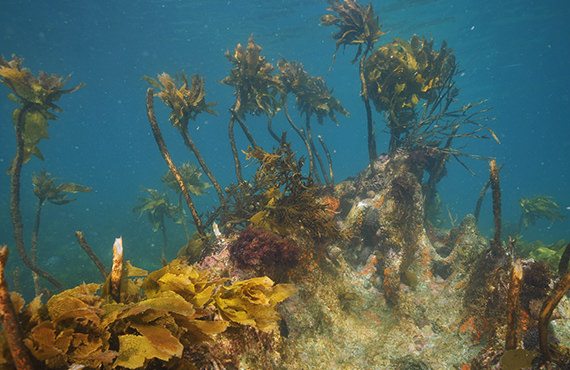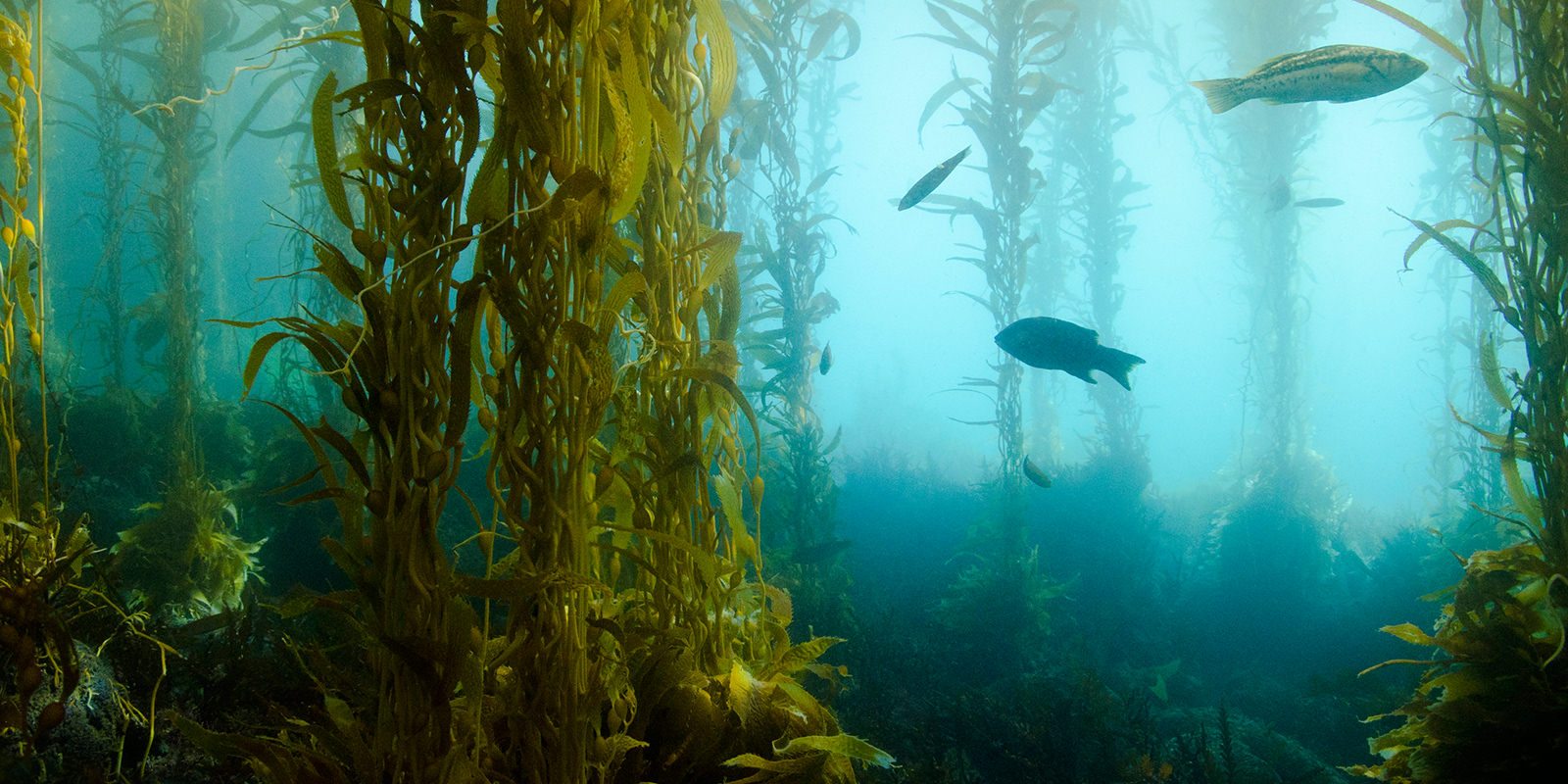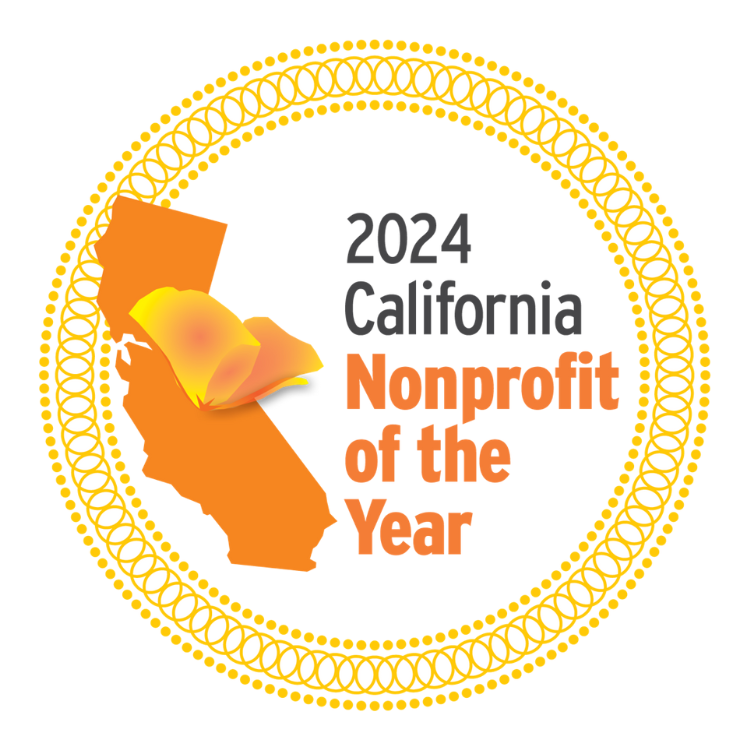About Giant Kelp
Giant kelp is the fastest growing aquatic plant and can grow up to two feet per day. It creates a dense ocean forest and acts like a rainforest canopy at the surface of the water. It provides food and shelter for more than 800 species of marine animals.
Snails, crabs, abalone, sardines, yellowtail, lobster, seals, sea lions, diving birds, dolphins, and whales are just a few of those animals that depend on a kelp forest at some point in their lifetime. Charles Darwin once compared a kelp forest to a terrestrial rainforest.
The Problem
More than 20 years ago, kelp forests began to disappear from Orange County’s coastal waters resulting in diminished fish populations and other ocean wildlife, native to this area. Since the 1980s, aerial images showed a significant loss in kelp forest densities. As much as 90% of Orange County’s kelp forests have disappeared.
Ecosystems require balance, and when outside pressures such as human inputs in the form of pollution, sedimentation, overfishing, etc. become too much, this natural balancing act can no longer occur. For example. sea urchins love to eat kelp and can consume it until it is gone. Two of the urchin’s top predators, lobster and sheephead, have had major declines in population due to overfishing, so urchins continue to be a threat to the rebounding kelp population.


What We Did
As water quality off of our coast began to improve with better storm drain management systems and other measures, conditions were right to begin restoring kelp. From 1999 – 2005, Coastkeeper grew kelp in our regional laboratory and in portable eco-cart aquaria that traveled to local classrooms for science students to participate in the restoration process. A collaborative project of the California Coastkeeper Alliance, students helped grow kelp and volunteer divers planted it on reefs in offshore waters.
Over this six-year program, we were able to train 130 volunteer divers to plant kelp and monitor the reefs, and we removed over 14,000 sea urchins from the reefs. More than 500 Orange County students got to take part in the process. The community, along with numerous species of marine life can now enjoy kelp canopies along Crystal Cove, Little Corona, and Laguna Beach.
In December 2012, we look forward to the return of the sea otter to the Southern California coast. The otter is a major predator of sea urchins, so the return of this adorable creature will help return natural balance to our precious marine ecosystems.
Read more about the return of the otter here.






